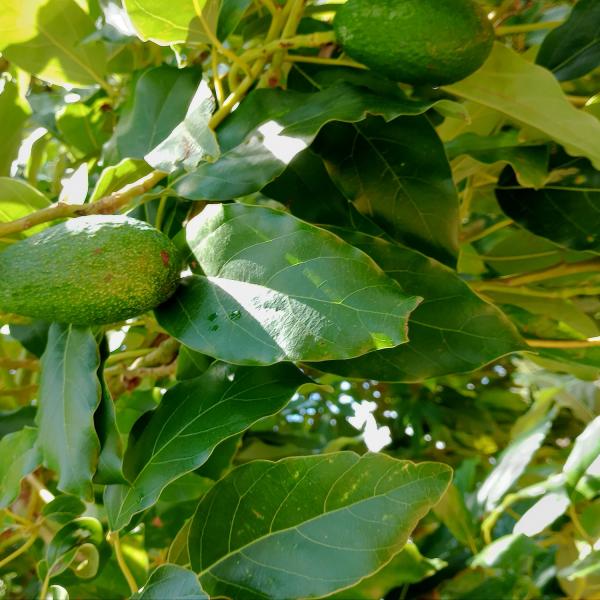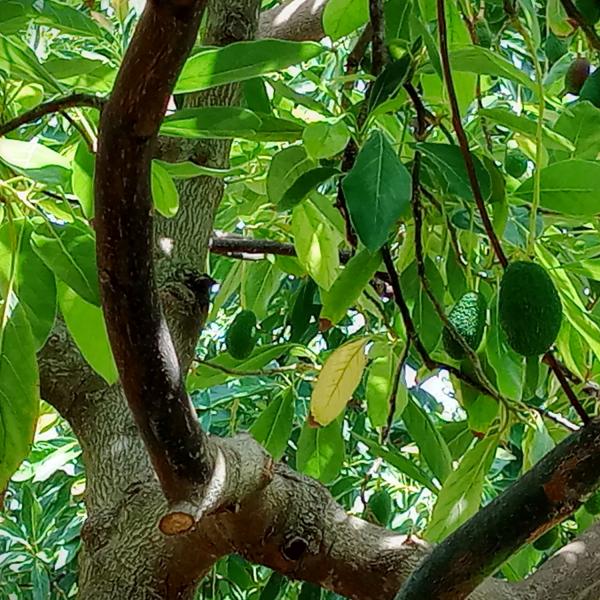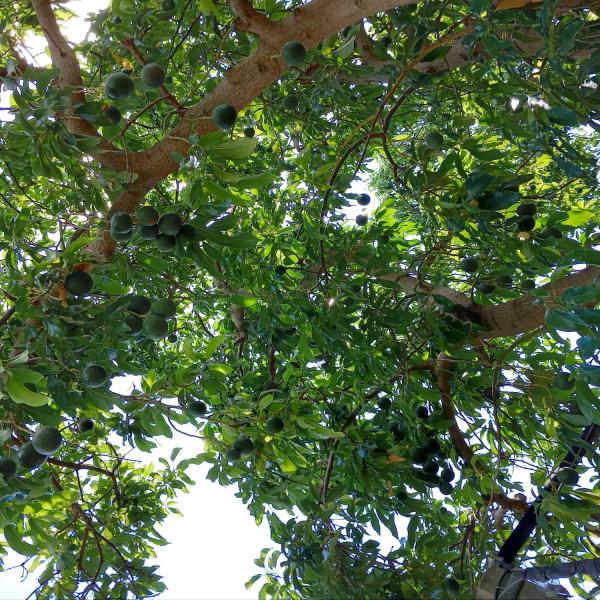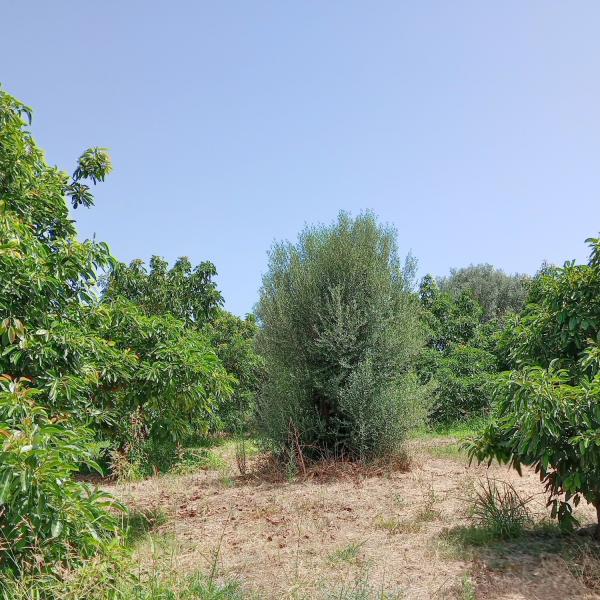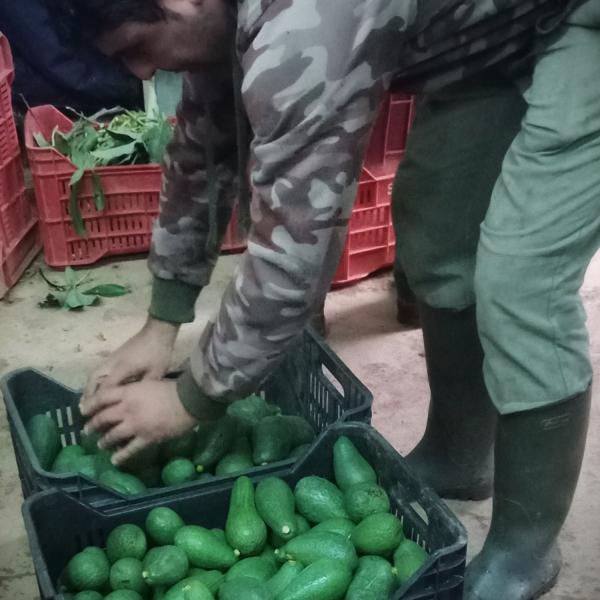The Italian avocado!
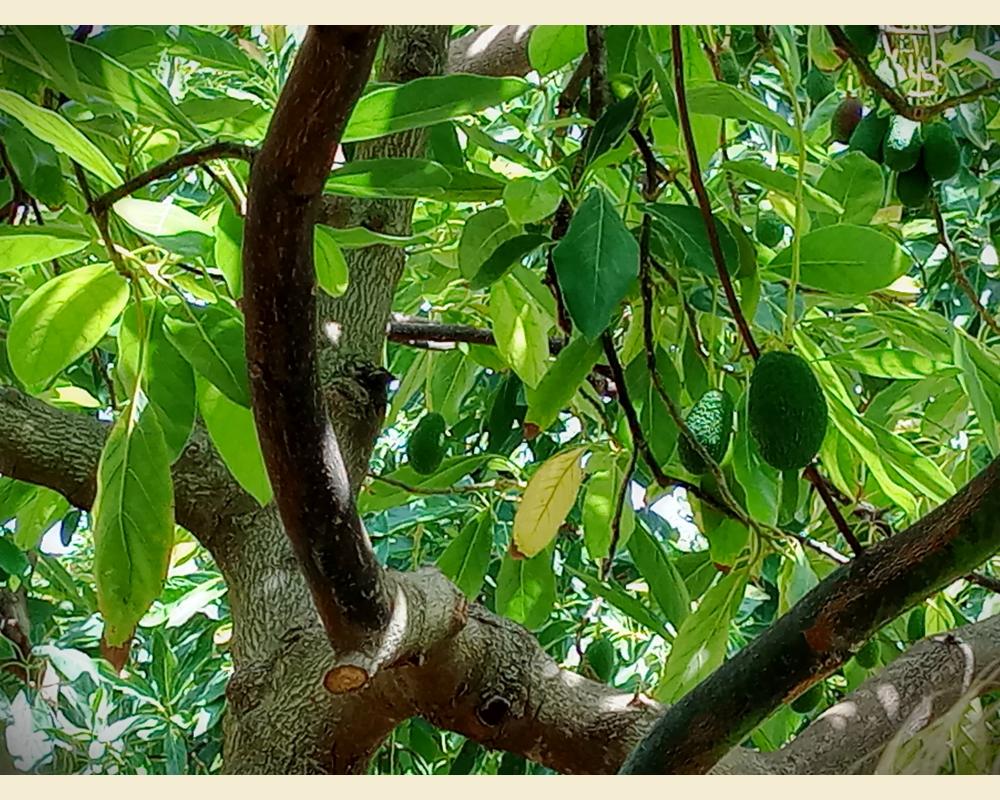
Some years ago our cooperative started selling avocados from southern Italy, an excellent quality product available from October to April. A valid alternative to the Spanish and Peruvian product that we continue to offer.
History of avocado in southern Italy
Native to Central and South America, it spreads rapidly in tropical areas. Avocado cultivation in Europe began in Spain with some avocado specimens introduced to the port of Seville at the end of the 18th century from the Canary Islands (Tenerife Botanical Garden).
During the 19th century, it spread to the hottest regions of the Bourbon Empire: Southern Spain, Sicily and finally to Calabria. The Messina plain is a center of diffusion for many exotic/sub-tropical crops, as was the case in ancient times with citrus fruits (from the East), and then with products from the Americas: tomato, chilli pepper, and later with avocado. As a perennial fruit, its domestication and adaptation has been much slower than annual vegetables (which in fact also grow in temperate and continental areas during
the summer season).At the beginning of the 20th century, many landowners from Sicily moved to Calabria, which offers many floodplains with greater water availability. Not only crops are born, but also pioneering nurseries that select avocados that are in high demand today because they are much more efficient and resistant than the American (Florida and California) and Israeli ones
, the most common in the world.The producers
Our main suppliers are organic producers and friends: Campisi di Siracusa, Agrinova BIO di Acireale, Sinubio and the Frutti del Sole Cooperative in Rosarno, Calabria.
Their organic crops are inserted among citrus groves, in medium-small plots that limit the phytosanitary problems that instead affect extensive mono-variety crops (Spanish model). The main problem is, as with citrus fruits, summer water consumption, which is why precision irrigation systems are used and local cultivars are planted that are resistant to water stress, as well as to frost and extreme heat. Avocados are usually grown in organic citrus groves in relatively small plots.
The plain of Lamezia Terme, in particular, has slightly acidic, fertile and well-irrigated soils, thanks to rivers, rivers and canalizations, and with little rainfall (surrounded by the Serre mountains, where rainfall is concentrated almost all year round). This is where the I Frutti del Sole Cooperative operates, an important actor of SOS Rosarno, the associative and productive network that supports the integration of migrants and the redemption of territories from mafias and corporals
through sustainable agriculture.Which avocado?
Hass is the best known variety because it is the best for container transport, also valid for its quality, but with a product matured in the plant you can appreciate many nuances of this fruit... exotic local. From September to October there is Bacon, with a dark and smooth skin, of large size, cultivated as a pollinator, followed by the Fuerte, similar but smaller and lighter. Then comes in January, the Hass variety, which has a large production window and green harvest, keeps very well. The latest are the Orotawa and Reed, which can ripen from
February to June!A great, more sustainable and tastier opportunity!
Because:
- local organic avocado productions are attentive to sustainability, landscape and water consumption
- avocado biodiversity is enhanced by consuming other non-HASS varieties, such as the early Bacon and Fuerte and the late Orotawa and Reed varieties
- improves the quality of the product, matured in the plant, harvested by experts at the right degree of ripeness, FAT-FIBER ratio and available to the consumer within 4-5 days
- the seasonality of the Italian product is extended instead of consuming imported products collected very green and matured in containers. 
